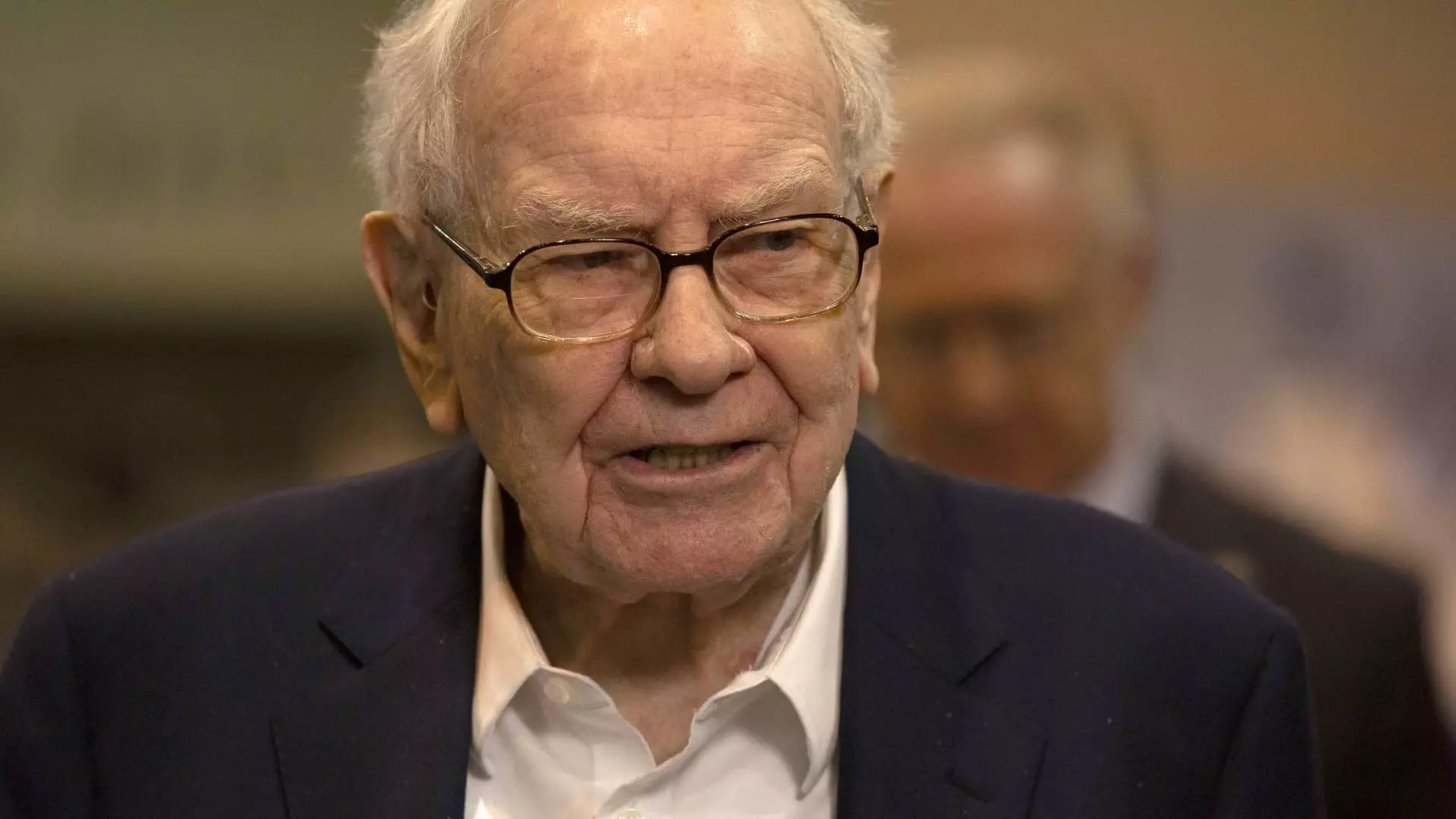Berkshire Hathaway has made headlines once again with its astonishing cash reserves, which have now surpassed a monumental $325 billion. As reported in its latest earnings release, the conglomerate’s cash holdings saw a significant rise from the previous quarter’s $276.9 billion to a striking $325.2 billion by the end of September. This impressive increase not only cements Berkshire’s financial strength but also raises questions about the strategic reasoning behind such a hefty cash cushion. It is apparent that Warren Buffett is adopting a cautious stance in an unpredictable economic environment, one where investment opportunities are being weighed against the risks of market fluctuations.
It is interesting to note the noticeable shift in Buffett’s investment strategy reflected in the quarterly activities of the conglomerate. Throughout the third quarter, Berkshire Hathaway engaged in a substantial stock sell-off, most notably shedding shares in its two major holdings—Apple and Bank of America. In fact, Buffett offloaded approximately a quarter of his formidable stake in Apple, marking the fourth consecutive quarter of reduction in this investment. Concurrently, Berkshire cashed out more than $10 billion from its long-held investment in Bank of America. This pattern of divesting major equities speaks volumes about Buffett’s current market outlook and reflects a significant pivot from his traditionally long-term buy-and-hold strategy.
Another glaring aspect of Berkeley Hathaway’s financial maneuvers during this period is the stark absence of any share repurchase activity. Historically, share buybacks have been a pivotal part of the company’s strategy, as they represent Buffett’s belief in the intrinsic value of Berkshire Hathaway. However, with the stock trading at record highs, Buffett refrained from repurchasing any shares during the third quarter—an evident departure from the buyback activities seen in previous quarters. In fact, only $345 million was spent on share repurchases in the second quarter, marking a decline from the $2 billion invested in each of the previous quarters. This shift may indicate Buffett’s hesitance to overextend financially while navigating through what seems to be a complexity of economic uncertainties.
Despite the selling and cautious approach, Berkshire Hathaway’s equity has performed commendably in 2023, boasting a 25% increase, which notably outpaces the S&P 500’s gain of 20.1%. The market capitalization of the conglomerate also crossed the $1 trillion mark, an achievement that further reflects investor confidence in its long-term stability. However, the company’s operating earnings took a hit, totaling $10.1 billion for the quarter, which represents a 6% decline from the previous year. This decline was attributed to challenges in insurance underwriting and indicates that while stock performance shines, core operational profitability may be encountering headwinds.
Buffett’s sale of stock and accumulation of cash come at a time when market enthusiasm is tempered by macroeconomic concerns. The stock market has shown resilience in the face of rising interest rates, particularly as the Federal Reserve grapples with inflationary pressures. Noteworthy investors, including Paul Tudor Jones, have voiced concerns regarding the burgeoning fiscal deficit and the political landscape that may hinder necessary fiscal reforms. This backdrop suggests that Buffett’s cash strategy is not merely about liquidity but also a tactical maneuver in response to the broader economic landscape—one where potential future tax changes, especially concerning capital gains, may complicate investment decisions.
Berkshire Hathaway’s recent financial maneuvers underline a calculated approach by Buffett amid prevailing economic uncertainties. The accumulation of cash reserves, major divestments from significant holdings like Apple and Bank of America, and the pause on share buybacks all point towards a strategic repositioning. As the Oracle of Omaha navigates through a complex market and contemplates potential tax implications, his actions reflect both caution and foresight—principles that have long guided his investment philosophy. The unfolding developments will rightly warrant close scrutiny as investors evaluate the implications of Buffett’s choices on Berkshire Hathaway’s trajectory in the coming years.

